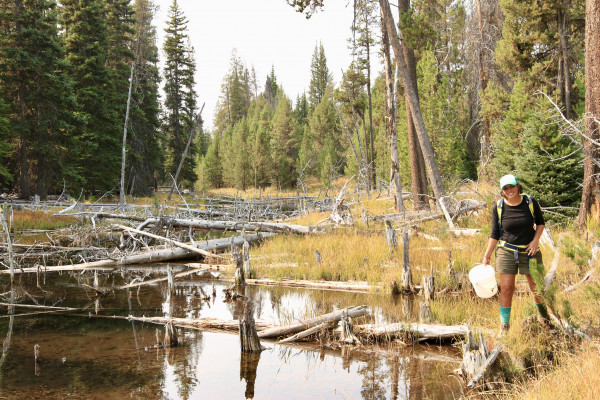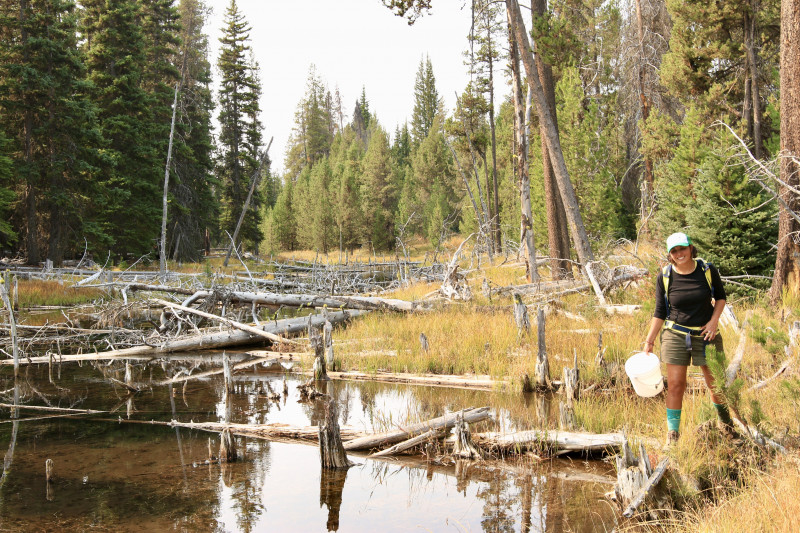The field of fisheries science and management is strikingly not diverse.
In the American West, where Native Fish Society works, white males make up the vast majority of fisheries scientists and managers. For example, 53% of the population is white, but 94% of fisheries scientists in academia and 91% of federal fisheries scientists are white. Three out of every four fisheries managers/scientists identifies as a man. Broadly speaking Native Fish Society reflects this lack of racial and gender diversity. Based on the best available information, less than 10% of our membership are folks in the Black, Indigenous, People of Color (BIPOC) community. Less than 25% of our membership and volunteers identify as women. Through an organization-wide commitment, actions with accountabilities, and relationship building we are taking a proactive approach to dismantle the systemic barriers to women and people of color in our organization.
To revive healthy watersheds and abundant wild fish we need innovative solutions that elevate science, facts, and indigenous ways of knowing and doing.
One way to advance these needs is by increasing the racial and gender diversity of our organization and field. Studies show that diverse teams focus more on facts, process facts more carefully, and are more innovative. Additionally, an increase in diversity can bring ways of knowing and stewarding fish, rivers, and watersheds that are more deeply rooted in place and sustainability.
Environmental stewardship relies on healthy communities and environmental justice.
Stewardship happens when community members work together to safeguard the land, air, water, and species we all depend on. In the United States, systemic racism and discrimination against communities of color creates barriers to enviornmental stewardship. Racism and discrimination has also concentrated pollution in communities of color. For example, landfills, hazardous waste sites, and other industrial facilities are most often located in communities of color. In the Pacific Northwest, native fish like salmon remind us that everything and everyone is downstream. To revive wild fish to abundance that swim in every corner of our region and throughout the ocean, we must work in unity to ensure no community’s clean air, water, or healthy lands is sacrificed.
Reviving abundant wild fish will take a groundswell of support from communities united across difference.
Big coalitions of diverse communities are the best way to win the attention of decision-makers and make positive change happen. Research on non-violent public campaigns finds that mobilizing 3.5% of a population is required for a successful effort. In the Pacific Northwest, this means mobilizing over 500,000 people. To create this kind of groundswell Native Fish Society needs to be a leader in building a relevant and welcoming organization.

